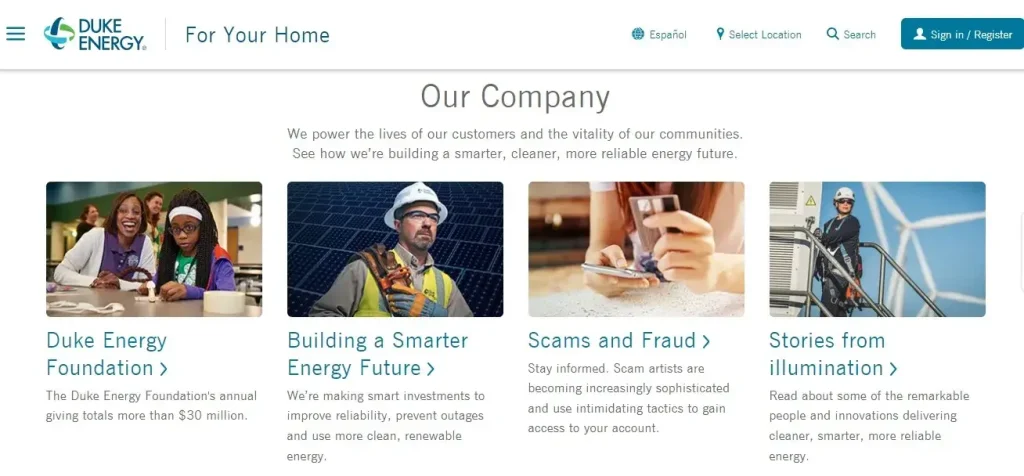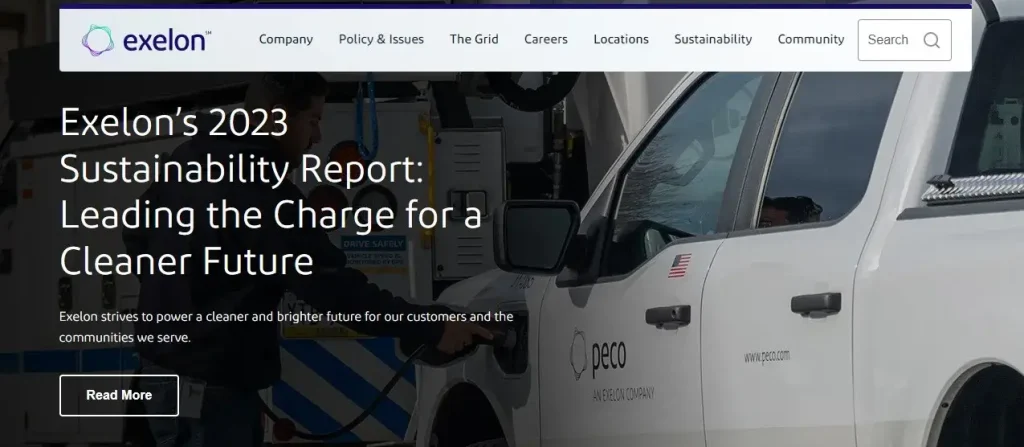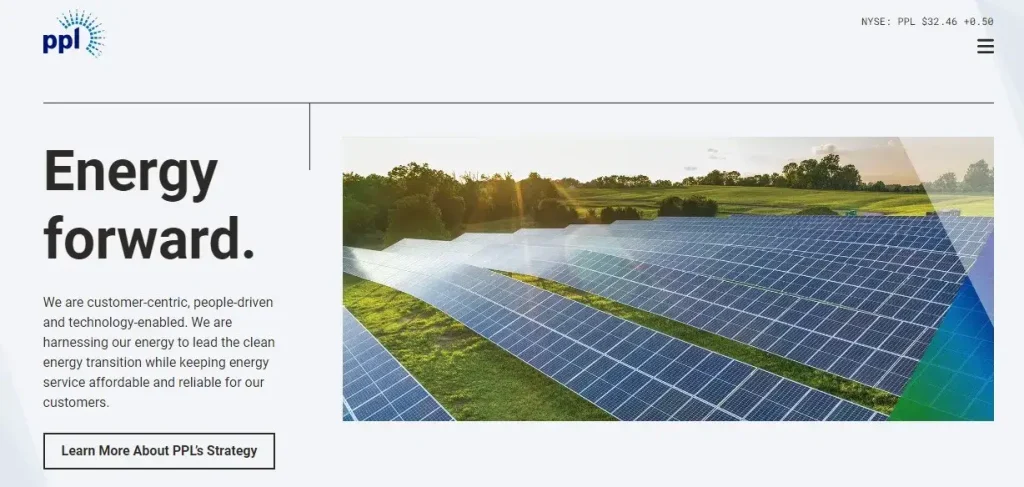What Are the Top Public Utilities Companies For Investors to invest in now? Are you looking to invest in a company that offers reliable services? If so, you should consider investing in one of the top 12 public utility companies.
In this blog post, we’ve rounded up a list of the best public utility companies for investors to consider. From energy and water companies to telecommunications providers and beyond, there is something for everyone!
What are Public Utility Companies?
Public utilities are essential services that play a vital role in economic and social development. They provide essential goods and services for everyday life, such as water, gas, electricity, telecommunications, and other communication systems.
The natural monopoly of certain services is a fundamental economic principle that differentiates utilities from other economic organizations.
Public Utility Companies are a type of business that provides vital services to the public, such as electricity, natural gas, water, and telecommunications. These companies provide essential services for people’s everyday lives, so it is important to understand what they are and how they work.
A Public Utility Company is responsible for providing energy or communication services to the public. Since antiquity, they have been around in some form and were first created as government organizations with regulatory bodies.
Nowadays, most public utility companies are privately owned but remain heavily regulated by law to protect consumers’ interests. They must adhere to strict industry standards regarding service quality and pricing.
Public Utility companies come in various shapes and sizes; large businesses may offer a wide range of services, while specialized niche companies may focus on renewable energy resources like wind energy.
Regulation by the Public Utilities Commission (PUC) is common to ensure quality and reliable utility service to consumers. Private or public-private hybrid models are being increasingly adopted due to the lumpiness of investments involved in water and sanitation projects which cannot be easily financed with traditional methods.
The competition also plays an important role as introducing competition into competitive components of an industry can create incentives for new players to enter the market. For example, a telecommunications company may be incentivized to enter a market with existing competition.
You May Also Like: Top 10 Companies in the Capital Goods Field
1. Duke Energy
Duke Energy, one of the U.S.’s largest electric and gas utilities, has been ranked No. 1 among U.S. utilities for investor transparency in 2021 by Our Company, We Power. This recognition comes after a year in which Duke Energy invested heavily in renewable energy and achieved significant reductions in carbon emissions while also maintaining a focus on social responsibility.

Additionally, Duke Energy was named to Fortune magazine’s 2019 list of the World’s Most Admired Companies and ranked 5th among gas and electric utilities for its investor disclosures.
Duke Energy also saw new gas generation technology bring unprecedented synergies for the electric and natural gas industries in merchant generation.
With 7.7 million customers across the Southeast and Midwest, Duke Energy is well-positioned to continue providing reliable energy services to its customers well into the future.
2. Pacific Gas & Electric Co.
Pacific Gas and Electric Company (PG&E) is one of six investor-owned electric utilities in California. The company provides natural gas and electric service to approximately 16 million people across a 70,000-square-mile service area.
PG&E is one of the largest combined natural gas and electric energy companies in the United States. The company has submitted an application to the California Public Utilities Commission (CPUC) for an authorized base revenue requirement, which includes five years of oversight.
PG&E also includes a periodical newsletter with its monthly bills to customers and notifies customers a couple of days ahead of planned shutoffs. In addition, PG&E has externally promoted its ideal of diversity by sponsoring scholarships for over 20 years.
3. Xcel Energy Inc.
Xcel Energy Inc. is a leading American utility holding company based in Minneapolis, Minnesota. The company provides electricity and natural gas to more than 3.7 million electric customers and 2.1 million natural gas customers across eight US Midwest and Rocky Mountain states.
Xcel Energy produces electric energy through various sources, such as coal, nuclear, natural gas, wind, hydro, biomass, and solar power. PSCo, a Colorado corporation wholly owned by Xcel Energy Inc., specializes in transporting, storing, and distributing electricity.
In addition to energy production and distribution services, Xcel Energy has net sales from activities such as non-utility energy-related services. At Xcel Energy, we are committed to providing clean and essential energy that powers every moment of our customers’ lives while creating value for all stakeholders.
4. Always Energy
Always Energy is a public utilities company that offers its customers an array of energy solutions. Founded in 2016, the company provides electricity and natural gas services to residential, commercial, industrial, and institutional customers across New Jersey, Pennsylvania, and Maryland.
Always Energy is a public utility company providing energy services to individuals and businesses across the U.S. The company has grown rapidly in recent years due to its commitment to providing reliable energy at competitive prices.
Always Energy has grown to become one of the country’s top 100 largest electricity providers. Always Energy has made it its mission to provide customers with reliable and affordable energy options that best meet their needs.
The company offers various services such as natural gas, renewable wind power, solar energy solutions, sustainable energy sources, and flexible plans tailored to each customer’s usage requirements.
Additionally, they offer free access to an online portal that provides resources such as energy-saving tips and technological insights into how customers can benefit from always energy’s services.
Always Energy strives to be a leader in providing innovative solutions for residential and business customers so they can save money while reducing their environmental footprint simultaneously.
Always Energy’s mission is “to provide safe and reliable energy products with superior customer service.” To achieve this goal, they employ advanced technology and state-of-the-art systems to ensure their services are always up to date with the ever-evolving energy industry.
In addition, Always Energy prides itself on offering innovative programs such as online bill pay options and green power initiatives that help customers save money while also helping them make more sustainable choices for their homes or businesses.
5. Dominion Energy Inc.
Dominion Energy Inc. is an integrated energy utility that operates in 16 states across the United States, providing clean, reliable, and affordable energy to more than 7 million people.
Headquartered in Richmond, Virginia, Dominion Energy provides electricity to over 2.5 million homes and businesses. It also produces and distributes natural gas, as well as related services.
The company’s operations are divided into four segments: Dominion Energy Virginia, Gas Infrastructure Group (GIG), Power Delivery Group (PDG), and Dominion Generation Group (DGG). In addition to serving customers in the US, VEPCo remains the largest contributor, with approximately 60% of the expected operating earnings for the company.
With a focus on creating long-term value for shareholders, Dominion Energy is committed to providing high-quality services and products while promoting sustainable practices that benefit customers and communities alike.
You May Also Like: Top 10 Product Niches for Online Business
6. Exelon Corporation
Exelon Corporation is a diversified utility and merchant power company that provides energy generation, delivery, and marketing services throughout the United States and Canada. It operates in 48 states, the District of Columbia, and Canada and serves approximately 10 million customers.

Exelon is composed of six regulated utilities—Commonwealth Edison (Illinois), PECO Energy Company (Pennsylvania), Baltimore Gas & Electric (Maryland), Delmarva Power, Atlantic City Electric, and Pepco—and a shared corporate services unit known as Exelon Business.
The company has a notable market share in at least four industries: Utilities, Electric Power Transmission, Coal & Natural Gas Power Generation, and Renewable Energy Production.
Employees at Exelon Corporation rate their CEO Christopher Crane 70/100, which is 14% lower than the scores of DTE Energy’s CEO Gerard Moodey’s Investors Service rating of 5.3B-. The company has achieved the lowest carbon intensity among US-headquartered companies assessed by divesting from coal-powered plants.
7. Southern Company
Southern Company is an American gas and electric utility holding company based in the southern United States. It is headquartered in Atlanta, Georgia, and operates through three main segments: Traditional, Our Family of Companies, and Fitch.
Southern Co. owns three traditional electric operating companies—Alabama Power, Georgia Power, and Mississippi Power—and a variety of other energy sources, including natural gas, solar power, and carbon-free sources.
Through power purchase agreements with various utilities, Southern Company provides electricity to its customers. Its competitors include American Electric Power, Alabama Power Company, Dominion, FirstEnergy, and Duke Energy Corporation.
Founded in 1947 as The Southern Company comprised of Alabama Power, Georgia Power, Mississippi Power, and Gulf Power, it has grown to be one of the largest energy companies in the United States, providing reliable energy services to millions of customers across several states.
8. American Electric Power Company Inc.
American Electric Power Company Inc. (AEP) is a public utility holding company that provides electricity to customers across the United States. The company generates, transmits, and distributes electricity using coal, lignite, natural gas, wind, solar, nuclear, and hydro sources.
American Electric Power Company operates in four segments: Vertically Integrated Utilities; Transmission and Distribution Utilities; AEP Transmission Holdco; and Generation. AEP is one of the largest electric utilities in the United States and is listed on the New York Stock Exchange (NYSE) under the ticker symbol AEP.
The company has been endorsed by the European Union and UK regulators for its corporate finance activities. It is also among the top peers in its industry, such as Xcel Energy Inc., Exelon Corp., Consolidated Edison Inc., and Pacific Gas & Electric Co.
9. NextEra Energy
NextEra Energy is the world’s largest utility company and a leader in the electric and gas utilities industry. It has been recognized among the top 20 companies worldwide, across all industries, for its exceptional performance.
Through its subsidiaries, NextEra Energy generates clean and emissions-free electricity from seven commercial nuclear power units in Florida, New Hampshire, and other states.
As one of America’s largest capital investors in infrastructure, with between $50 and $55 billion in new infrastructure investments planned through 2022, NextEra Energy is committed to providing reliable energy solutions for its customers.
Additionally, OGE Energy – a company that provides electric utility services in Oklahoma and western Arkansas – is a subsidiary of NextEra Energy Inc., which generates electricity using different fuel sources such as natural gas and oil, wind, solar and nuclear. It offers electricity to utilities, retail energy providers, municipalities, and other end-users.
10. CenterPoint Energy, Inc.
CenterPoint Energy, Inc. is an American Fortune 500 public utility holding company that provides electric and natural gas services to customers across Arkansas, Indiana, Louisiana, Minnesota, Ohio, Texas, and Wisconsin.
CenterPoint Energy operates through its subsidiaries, including CenterPoint Energy Houston Electric LLC and NorAm Energy Corp. The company has a long history of providing reliable energy services to residential and business customers.
CenterPoint also focuses on improving its business risk profile by exiting from the midstream business. Its top peers include WEC Energy Group Inc., Avista Corp., Archaea Energy Inc., and SRE.
11. SCANA Corporation
SCANA Corporation is a regulated electric and natural gas public utility based in Cayce, South Carolina. It is a wholly-owned subsidiary of SCANA Corporation, which generates, distributes, and sells electricity and natural gas services throughout North Carolina, South Carolina, and Southeast.
The company also owns ITCADeltaCom, a fully integrated telecommunications provider. In 2018, SCANA Corp announced an agreement to combine with South Carolina Electric & Gas Company (SCE&G) in a stock-for-stock merger.
SCE&G is the principal subsidiary of SCANA Corporation and a regulated public utility with a $12 billion market capitalization. Combining these two companies will create one powerful energy corporation that will significantly impact the state of South Carolina.
12. PPL Corporation
PPL Corporation is an energy and utility holding company based in Allentown, Pennsylvania, in the Lehigh Valley region of eastern Pennsylvania.
The company is publicly traded on the New York Stock Exchange (NYSE: PPL) and provides power to some 10 million customers across three states: Pennsylvania, Kentucky, and Rhode Island. PPL Corporation’s family of companies consists of Louisville Gas & Electric and Kentucky Utilities, PPL Electric Utilities, and Rhode Island Energy.

The company is highly regarded for its reliability and customer satisfaction. It has developed one of the country’s most advanced energy infrastructures, including a wide array of renewable sources such as solar, wind, hydropower, biomass, geothermal energy, and more.
On top of that, they have also won a pair of Achievement Awards from the Association of Edison Illuminating Companies (AEIC). PPL Electric Utilities is proud to be a major employer within their communities, providing good jobs with competitive wages while providing reliable power to their customers.
Conclusion on Public Utilities Companies
This blog concludes that deregulation and privatization of utilities, as well as growing brownouts and blackouts in the electricity sector, have significantly impacted the industry.
Public ownership of utilities and the case for privatization have been explored in depth, with attention given to the lifecycle cost associated with each type of utility.
It is important to note that rapid economic and population growth in urban areas has increased water supply demand.
The findings from this study suggest that energy companies must continue to adapt their strategies as technologies evolve, while governments at all levels must work together to ensure reliable access to essential services for all citizens.